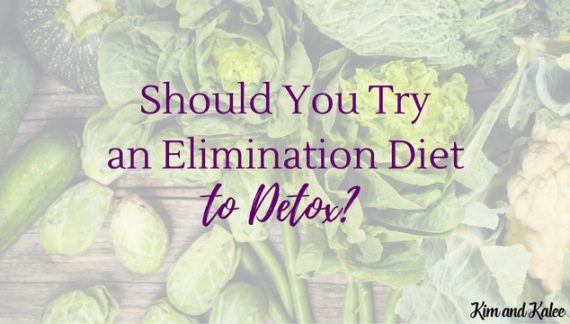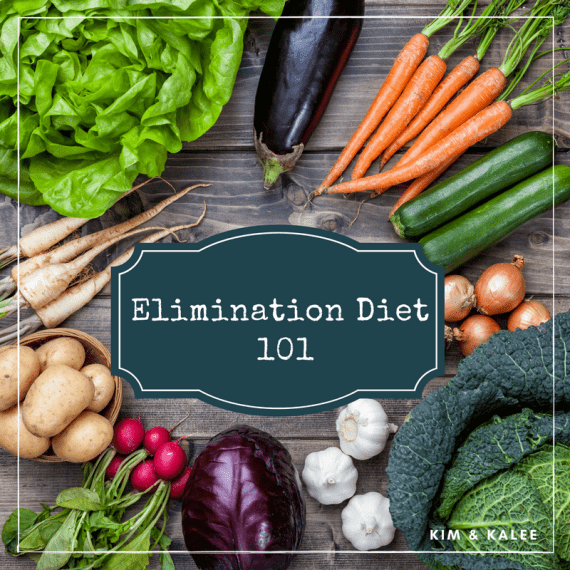Should You Try an Elimination Diet to Detox?
This post may contain affiliate links. All opinions shared are my own. As an Amazon Associate I earn from qualifying purchases. Click to view our full disclosure.
All content is created by humans – not AI.
An elimination diet might sound like a Hollywood fad, but it can be beneficial to your overall health. If you’re just not feeling your best and brightest, you may have a food sensitivity causes you to have one or more of the follow symptoms.

Symptoms of Food Sensitivities
- Bloating
- Migraines or Headache
- Cough
- Runny nose
- Cold-like symptoms
- Stomach ache
- Irritable bowel
- Rash or hives
- Breakouts of acne
- Fatigue
There are other symptoms associated with food allergies as well so do your research, but those are the most common ones.
An elimination diet allows you to identify foods that you possibly are allergic to that are causing you to feel dull, achy, or down. By eliminating certain foods you’ll have the opportunity to see which foods may cause you discomfort. With an elimination diet, you’ll be down to just a few food groups and slowly start adding in new foods to find the sensitivity. The most restrictive elimination diets have you only eating potatoes, rice, turkey, pears, and squash in the first phase.
Just like any new diet or workout, it’s always best to consult a doctor first. He or she may be able to guide you through the process or recommend someone else that can. Also, if you aren’t suffering from a food allergy, this restrictive diet really isn’t for you.
Common Food Allergens
The most common foods allergens are: gluten, dairy, soy, eggs, corn, pork, beef, chicken, beans/lentils, coffee, citrus fruits, nuts, nightshade vegetables, processed, fried foods, and spicy foods. Tomatoes, sugar, caffeine and alcohol should also be avoided during an elimination diet as well as they can cause sensitivities.
How long does an Elimination Diet Take?
It’s recommended to restrict yourself to non-irritants for 2-4 weeks. After those weeks, you can then introduce a new food every 4 days tracking how you feel each day. With that said, the whole process takes about 5 to 6 weeks.
What Can You Eat on an Elimination Diet?
Bone broth, fermented foods, coconut products, leafy greens, vegetables, and non-citrus fruits are all recommended on the restrictive diet. If you do want a meat, it’s best to look for organic, grass-fed options. For your healthy fats avocado, coconut oil, and extra virgin olive oil are all good.
2 Popular Elimination Diets
After suffering with digestion my whole life and developing perioral dermatitis (blisters on my chin), I decided to time to look at my diet. I have since tried 2 popular elimination diets and met several others that have done both as well.
Ironically both are very different from each other in what they restrict.
Ultimate Reset
The first one that I tried was the Ultimate Reset. Over 3 weeks, it has you eliminate meats and processed foods. By week 3, you are eating a vegan diet of fruits, vegetables and grains like quinoa. It also includes supplements like alkaline (greens to help with inflammation), dry brushing and optimize for digestion.
Whole 30
Then other one I tried was the Whole 30. Ironically, it has you eliminate all grains. Unlike the Reset where it continually gets more restrictive, the Whole 30 immediately eliminates all grains, beans/lentils, and legumes. You can have fruits, veggies, high-quality meats, and healthy fats like avocado, nuts, etc.
Both diets eliminate dairy.
Both work differently for different people. Ultimately I found my allergen to be almonds. So the Reset was the better choice for me in hindsight since the Whole 30 allows almonds 3x a day as a healthy fat. However, I never would have known that without trying both.
I also felt weaker on the Reset due to the low calorie count. I did feel more clear and saw my skin and digestion improve with it compared to the Whole 30. Now that I know my allergen, I’ll probably never do a full program of either again (it’s hard!).
The benefit of doing either one of the programs is that there is all kinds of support out there for both. If you chose to do either – we’d love to help you as well. Just contact us through the About page.
Will I Lose Weight on an Elimination Diet?
You could, but it isn’t a weight-loss diet. The reason you could is that your body may respond better to the foods. The foods included in an elimination diet are cleaner, low-calorie foods than the typical American diet so you may be eating fewer calories even though you’re eating the same or bigger amounts of food.

3 Steps to an Elimination Diet:
Step One: Certain foods are more likely to contribute to your symptoms than others. So it’s important to research which foods are common food allergies and cut them out of your diet completely.
Step Two: It takes time for allergens to leave the body so it’s best to give yourself 3 to 4 weeks on the diet before adding in a new food. I liked using a food tracker to track not only my meals but my symptoms as well. This allowed me to see what were causing my symptoms faster.
Step Three: Starting in Week 3 or after, you can start adding in one new food every 4 or 5 days. As you add in new foods track how you are feeling and what you are eating to identify what is causing the symptom.
Tips to Completing an Elimination Diet
- Meal Prep Your Foods – Since your eliminating foods to just the basics, it can be hard to stop anywhere for a meal on the go. Prep your meals ahead of time and tell your family and friends to help you stay on track.
- Clean out the Kitchen – Again, you don’t want to be tempted by foods that aren’t on your plan.
- Keep a Journal – It should track everything going into your mouth, how you feel, and how you are sleeping.
- Read Labels – Even foods that you think wouldn’t have corn or caffeine in them could! Check those labels or just stick to whole foods (not in a box!).
My Experience & Results
I really hated doing the elimination diet to be quite honest. It was hard. It took will-power, a focus on why I was doing it and moe meal prepping than I was used to. I also am hard headed about limiting and restricting food groups so I had to remind myself it was short-term. I also got tired of the foods I was allowed somedays.
With that said, I know doing the food elimination diet really helped my digestion and skin. I still have outside allergens like grass and certain trees which some say can be reduced through diet, but I never saw that benefit kick in on either program I did.
I found I was allergic to almonds and still have a sensitivity to some dairy products. Even with how hard it was, I’m glad I did it. I would rather have a few hard weeks than a lifetime of suffering with symptoms.





Great post! I definitely think elimination diets can be used strategically when people feel they have an allergy/sensitivity that they haven’t been able to nail down. But I feel like sometimes people choose to do them “just because” and I don’t understand why they would want to have so many restrictions without a medical issue.
It definitely is starting to seem like elimination diets are becoming a sort of “fad”, so it’s great that you provided this information. I agree that they definitely can be useful in certain situations, but there are certainly times where they serve very little use. I actually have a ton of digestive issues, but I have been putting off an elimination diet (basically for all of the reasons that you described in your experience section). But I’m planning on biting the bullet and doing one soon. Glad that you found it helpful!
Oh I know! It’s HARD, and then re-introducing foods one at a time every few days takes some major willpower. I know for me it helped with the digestion stuff (I used to be a mess! lol!) I hope you find the right time and right approach for you!! :)
I am currently on an elimination diet – Well… In the untraditional sense. I had to eliminate A LOT of foods from my life thanks to my intolerances and allergies… And it has BENEFITED ME SO VERY MUCH. But to each their own!! Everyone is built differently, that’s for sure!
Oh I remember the Miralax post – I never felt more in sync with a blogger after downing the stuff too! :P I’m glad a form of an elimination diet has helped you!!!
I believe an elimination can really help you detoxify your system and identify your allergen triggers. This is great info when you really want to reset your system.
I’ve luckily never had to take on an elimination diet. They seem to be quite difficult to maintain and it would probably be helpful to do it under the supervision of a Dietician or Physician!
I think that if this works for people, great!! I don’t see the ‘said’ HARM in trying one of these diets and seeing how it does and if symptoms improve. That said, so long as you conduct a healthcare professional/ RD before embarking on your elimination diet journey :)
Sometimes I worry we’re building a society where it’s cool to be allergic, and consequently, to have to eliminate things like gluten from the diet. So, so many people do these elimination diets and cleanses for the wrong reasons and subsequently mess up their systems. I feel for people who are truly, medically confirmed to be allergic to certain food groups. It can’t be easy to figure out what the problem foods are. Whenever my clients come to me with “should I eliminate this” questions, I always refer them to an RD so they can talk with someone who can help them the right way.